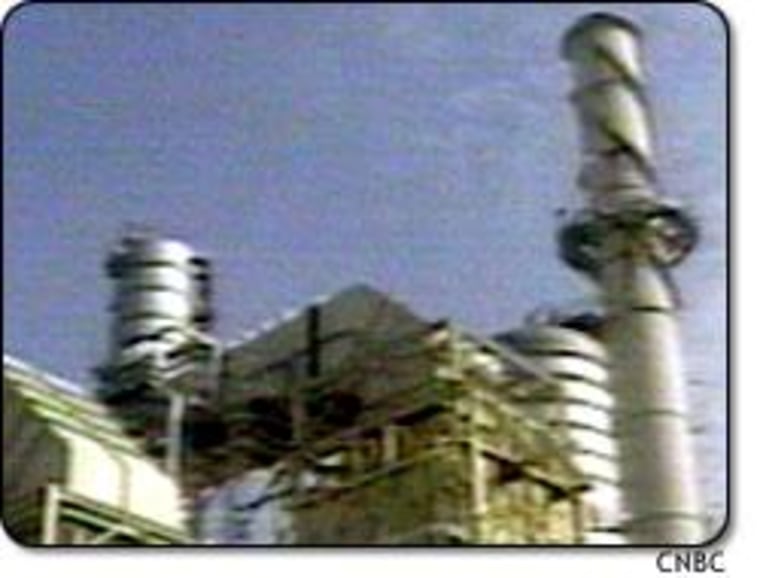Most of corporate America dramatically increased security levels in the aftermath of Sept. 11. But last week’s elevation of the national terror alert level to orange has led many firms to redouble their efforts — if not their investments - in security.
Here in California, security has already been beefed up at the state’s critical oil refineries, nuclear power facilities and chemical plants. Access to companies in the food industry has also been tightened.
Downtown Los Angeles has tallest building west of the Mississippi, along with other notable landmarks. Virtually all of them have a larger security presence.
News that a North Korean nuclear missile capable of reaching the west coast has only heightened the tension here in general, although it clearly remains at a level far lower than on the east coast.
“We don’t, on a day-to-day basis, see the increased security measures that you would on the east coast,” said Jim Brooks, a security consultant with Control Risks Group. “We don’t see anti-missile batteries sitting around Los Angeles like you see in Washington D.C. However, companies on the west coast are actively taking measures. They’re just not as visible as the east coast.”
Annual outlays on security at the consumer and corporate level is expect to increase by $30 to $50 billion dollars this year. That’s on top of the $60 to $80 billion dollars spent annually prior to Sept. 11.
In terms of the specific steps companies are taking to prepare for and guard against a possible terrorist attack contingency and disaster planning tops the list. Many firms are hiring consultants to help develop strategies for keeping employees safe and if possible, keeping the business running in the event of a serious disruption.
Often this involves establishing remote locations for employees to continue working. That can mean anywhere from home to separate facilities in outlying areas.
It sounds basic, but it’s important: identity checks are now standard operations at all kinds of companies. Now more than ever, companies are making sure they know who’s coming on the premises and Where they’re going.
Also, smart companies are finding out who the first responders are in their areas, by going out and talking to the local fire department, police department, and other government agencies — which some firms may not have day-to-day contact with.
Technology and personnel vary company to company. But since Sept. 11 lots of businesses have added electronic and human sentries and generally added resources to monitor their operations.
Still, according to a survey conducted a year after the Sept. 11 attacks by the American Management Association, only about a third of companies surveyed had made any kind of contingency plans for something big like a terrorist attack.
Most of the companies we talked to had the same complaint, including Gene Thompson, the corporate security chief at Macerich Company, owner/operator of 50 regional shopping malls nationwide.
“These sort of non-specific threats cause us a great deal of concern because we really don’t have a clear idea of what we should be doing,” he said. “We would certainly like some better clarification from the government when they make an announcement like this.”
Macerich Company has, in fact, enhanced security at all of its properties. It has had a contingency plan in place for some time. But a lot of other companies still have far to go.
